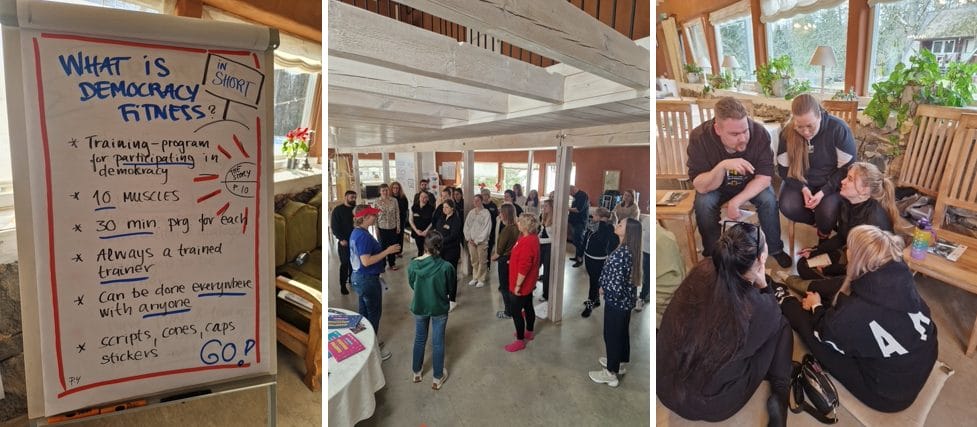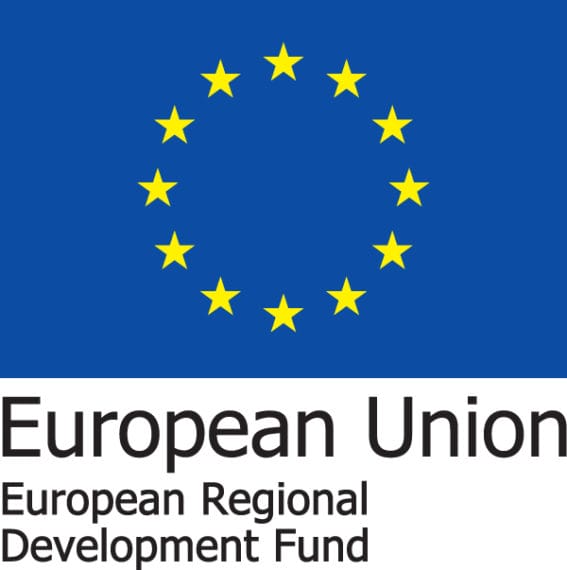
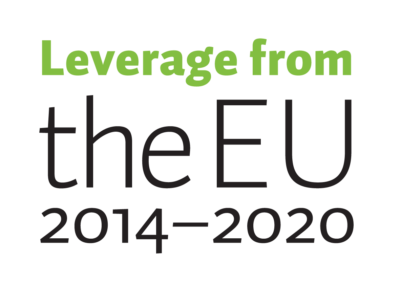
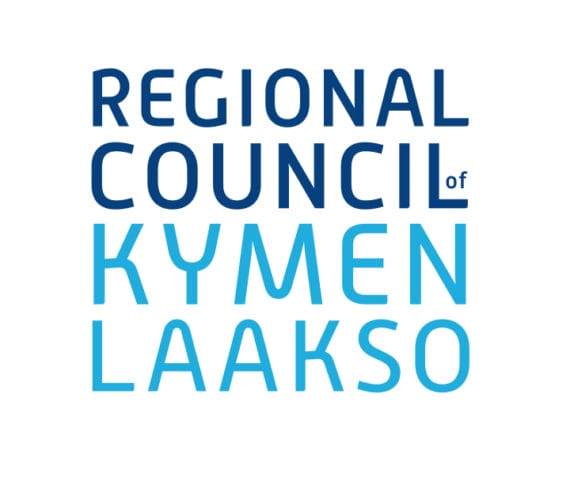
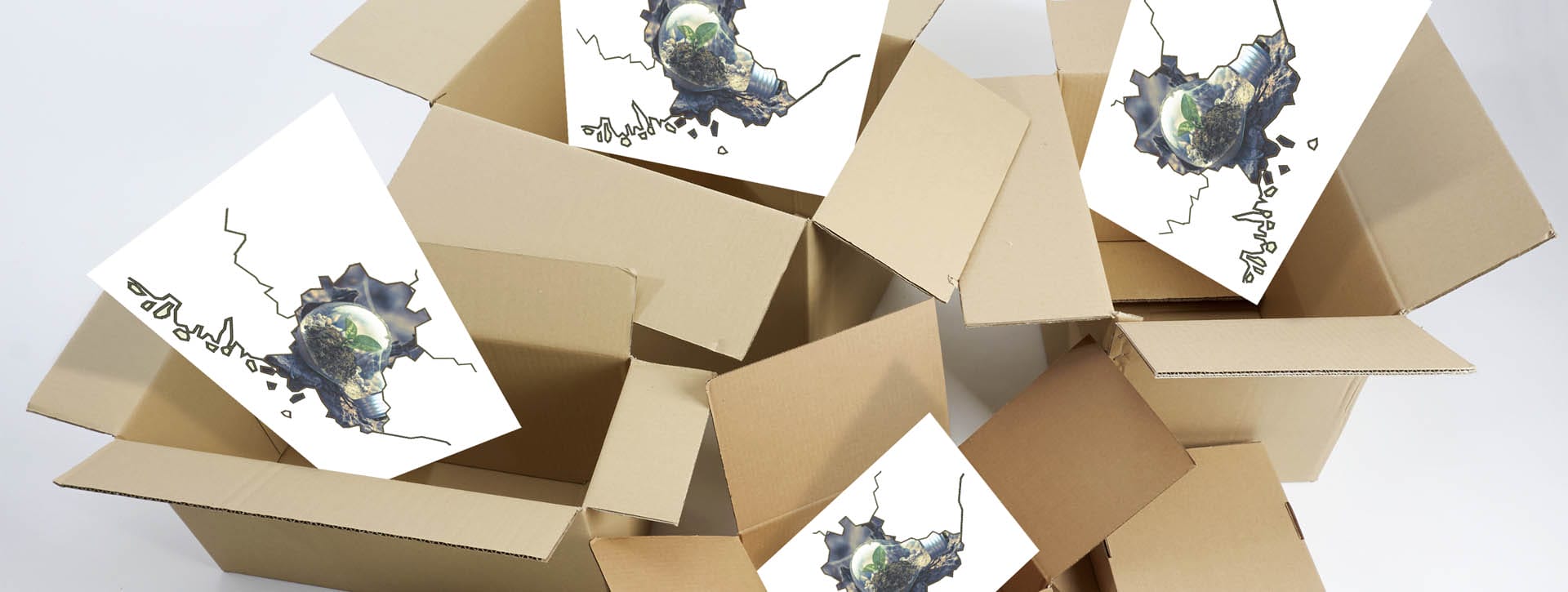
BUT
New openings in the bioeconomy
The target of the project was to strengthen existing networks and to bring cooperation and know-how to the level necessary for development work that has a significant impact on the region and enhances international co-operation.
The project has been completed.
About the project
The project is implemented by South-Eastern Finland University of Applied Sciences (Xamk): lead partner
Kouvola Innovation Oy (Kinno): partner
LUT University (LUT): partner
Implementation time and place: 2020-2022, Kymenlaakso Region, Finland
The target of the project is to strengthen existing networks and to bring cooperation and know-how to the level necessary for development work that has a significant impact on the region and enhances international co-operation. The aim is to find, create and implement new approaches to take the potential of the bioeconomy (e.g. energy efficiency in the SME sector, blue bioeconomy, biodegradable /plastic-free products, packaging development). The project is based on the RIS3 strategy, and supports regional vitality and development, in particular as a developer of bioeconomy and its diverse potential.
The project is seeking suitable tools and operating models to serve Kymenlaakso region’s carbon neutrality goals. The project will also network internationally, which will help Kymenlaakso’s role in the bio- and circular economy to promote low carbon targets. The results of the work packages are e.g. cooperation network and concept for manufacturing fiber-based packaging for business needs. The project increases the knowledge and expertise of operators in fiber-based packaging solutions and fossil-free energy solutions, among other things. The project creates an opportunity for companies in the region to network with international actors on various topics, and supports the continuity and development of their operations by engaging international actors.
The project enables Kinno and Xamk to continue their operations in the Kymenlaakso’s RIS3 bioeconomy sector. The operation and further development of the expert group, which can be supported by the project, is essential for the implementation of the bioeconomy strategy. LUT’s activities support regional development and closer co-operation in the area, which allows R&D results that are more impressive.
Publications
BUT- publications (in English) (updated 9.5.2022 KT)
“Replacing fossil oil in property heating is both an ecological and an economical upgrade”. Höök, Tomi & Tallinen, Kirsi. Published 15.3.2022. Available: https://read.xamk.fi/2022/metsa-ymparisto-ja-energia/replacing-fossil-oil-in-property-heating-is-both-an-ecological-and-an-economical-upgrade/
“Circular Bioeconomy RDI and Education as Regional Influencers“. Maunula, Melina & Tallinen, Kirsi. An article in publication: Beyond 2021. Volume 22: Sustainable Development and Social Responsibility. Pages 72-80. Available: https://urn.fi/URN:ISBN:978-952-344-400-3
“Promoting Circular Bio-based Economy in Kymenlaakso Region”. Tallinen, Kirsi & Laine, Kari. Published 14.12.2021.
”Bio and circular economy – a way to success in Kymenlaakso”. Tallinen, Kirsi. Published 12.11.2021.
Available:
12.11.2021 10:51
Strong bioeconomy and circular economy activities in Kymenlaakso provide a solid foundation for new success stories in the region.
This was noticed in the international webinar Bioeconomy – Made in Kymenlaakso, Finland organized by BUT project at the end of September. The webinar was also a WCEF side event and an event of Year of research-based knowledge.
Strong actors in the region highlighted activities that promote both the bio and circular economy in the region. The real success stories are made together with different actors, which can be seen from the presentations.
The new video, Kymenlaakso, promoter of bio and circular economy, was premiered in the webinar as one of the outcomes of the project. The video shows that bioeconomy in Kymenlaakso have a background of 150 years, and the forest industry and primary production are still important parts of Kymenlaakso`s identity.
Kymenlaakso is a home to many bio and circular economy businesses, as well as several companies that work to advance sustainable development. The links to the videos can be found at the project websites both in English and Finnish: New openings in the bioeconomy (BUT) – XAMK.
SummarY of the webinar presentations
Forewords were given by Acting Mayor of City of Imatra Ari Lindeman, who also moderated the webinar. As a former research manager at Xamk, Lindeman has an extensive international experience.
– Development work often involves expanding networks and maintaining old connections, Lindeman highlighted.
The moderator´s experience on RDI activities combined to his present responsibilities in Imatra created a new bridge for cooperation between Kymenlaakso and South Karelia.
Opening words were given by Regional Mayor of Kymenlaakso, Jaakko Mikkola. Mikkola emphasized the importance of bio and circular economy for Kymenlaakso when moving towards carbon neutrality.
– Bio and circular economy is one of the main three priorities in our smart specialisation strategy (RIS3), Mikkola emphasized. – Smart specialisation is the driving force behind innovation, growth and internationalization to achieve a region that is competitive, attractive and vibrant.
– The choices of Kymenlaakso region for smart specialisation priorities are bioeconomy and circular economy, smart and green logistics, and digitalisation, Mikkola continues.
When all the top priorities of RIS3 meet and they naturally have interfaces, the most innovative and successful results are obtained.
- For more information about Kymenlaakso’s carbon neutrality, see the emissions table from this link. If you click on the red buttons in the picture you will find even more information.
Forest industry
The webinar provided an overview to development activities in forest industry companies operating in the area. All the globally operating companies have the same starting point for their operations: their business opportunities arise from the global megatrends, which enhances the demand for renewable materials.
– Everything that can be made from fossil-based materials today can be made from a tree tomorrow, Sunila representers Timo Tidenberg and Kari Nikunen explained.
Trees are composed of 20–30 % of lignin, and Sunila Mill is the largest kraft lignin extraction plant in the world. Lignin, that is treated to carbon, can be used as a replacer of graphite: trees can become batteries!
MM Kotkamills has a vision to replace plastics. There are hundreds of billions plastic containing unrecyclable cups, and it’s time to change that.
– Folding boxboard and barrier board offer the transition to plastic-free convenience packaging”, said Saila Kettunen.
MM Kotkamills has an integrated mill pioneering integration for resource efficiency. Working together in three business lines (folding boxboards and barrier boards, core materials for high pressure laminates, sawmills with wood products and providers of the raw material for other businesses) and creating smart relationships, accelerates the circular economy in the sustainable way and with broader impact.
UPM Kymi integrate consists of pulp and paper mills, energy production and production of precipitated calcium carbonate (PCC). It’s using 90 % biofuels in its energy production. The circular economy is a key element of its activities, and pulp is the powerhouse of bioeconomy.
Sustainable wood raw material turns into different fractions and are used e.g. as saw-dust, pulp and crude tail oil. Packaging board can be made of pulp and bioplastic made of residue of pulp production.
– Future beyond fossils can be achieved with sustainable solutions and utilizing the forest in a wise way” stated Jyri Kylmälä.
UNIVERSITIES CLOSELY RELATED TO KYMENLAAKSO
Juha Helenius from Ruralia Institute, University of Helsinki, clarified the meaning of agroecological symbiosis and its network. He also presented how logistics of biomass define the scale of “local”.
– Rural areas and rural cities can have a significant role in sustainability transformation”, Helenius stated.
Jouni Havukainen from LUT University showed LUT’s sustainable solutions for bio and circular economy through research and development actions. For example, LUT implements the projects related to using side streams to renew the concrete and examines materials and technology needed for sustainable re-materializations.
ABROAD
Potential partners for continuing co-operation with regional actors in Kymenlaakso in sustainable development were found in Estonia and Netherlands.
Kaja Peterson from Stockholm Environment Institute Tallinn Centre, Estonia, presented the importance of different matters: innovations in bioeconomy are enabled by linkages, networks and interaction.
– Potential is there, how to make use of it sustainably?, asked Peterson in her presentation.
– Bioeconomy and circular economy demand creativity and cooperation between the actors, Peterson concluded.
Alwin Hoogendoorn from the Centre of Expertise Biobased Economy (CoE BBE), Netherlands, introduced the five different biobased research groups at Dutch Universities of Applied Sciences, as well as many various projects.
Some of the projects are related to materials that are also of interested at Xamk (e.g. biochar), some are otherwise interesting projects such as developing leathery vegan materials.
REGIONAL ACTORS
Regional actors presented what they have done to accelerate bio and circular economy in Kymenlaakso region, and what the possibilities not yet efficiently used are.
Janne Harjunpää, representing Myllykoski Bioethanol and Redeve, showed ideal locations for bio and circular economy business. He told us about the plans for Myllykoski Bioethanol (Mbio) where the main raw material is sustainably harvested cereal straw from the region. The procurement brings steady long-term further cash flow to farmers and makes the cereal growing a major carbon sink and returns the nutrition components back to cultivation.
Another suitable site for new bio and circular economy businesses, with fully furnished office and large industrial space in Kouvola, is Voikkaa business park. Both sites have available infrastructure due to former paper mill located in the area.
Veli Hyyryläinen from Elementit-E showed us some facts about company: this family business in timber construction is one of the leading suppliers of modular buildings in Finland. Buildings are 100 % technologically recyclable and movable.
The company has taken several actions to promote bio and circular economy: sorting, recycling, training personnel and producing renewable energy with wood chips and solar panels. Elementit-E is actively fighting against climate change by further developing timber construction.
Virpi Leppälä, representing Kymenlaakson Jäte Ltd, 100 % communities-owned company, explained that the company has waste treatment center in Kouvola area, 10 waste stations and 70 eco-collection points mostly in the region of Kymenlaakso.
The waste company promotes bio and circular economy by producing biogas from garden waste and collecting landfill gas and turning them into energy (heat and electricity). The power plant using wood waste as a fuel has started heat production for district heating. The unrecyclable waste is used as a fuel in waste-to-energy power plant.
– In Kymenlaakso we utilize about 97 % of household waste, almost half as material and more than half as energy”, Leppälä emphasized. Company also has solar panels, geothermal heating in office building, and garbage trucks are using biogas as their fuel.
– Hyötyvirta concept is a network of environmentally focused businesses”, told Mika Penttilä from Kouvola Innovation through video.
Because the demand for green and innovative bio-circular solutions and technology is growing, there is a need for Hyötyvirta concept, business park and circular economy centre in Kouvola.
– Circular economy concerns all companies, and gives opportunities to create new business”, he continued.
The business park is to be built close to waste treatment center, with good logistics connections, to enable as effective and versatile material treatment and utilization as possible.
– Logistics, the location between east and west, was Mika’s answer for question about the biggest advantage for businesses locating in Kymenlaakso.
Petteri Jernström, representing KymiLabs of South-Eastern Finland University of Applied Sciences (Xamk), presented how Xamk can serve companies via environmental testing and RDI activities with focus area of forest, the environment and energy.
In Kymenlaakso region there are diverse RDI projects carried out in the fields of e.g. energy efficiency, fraction technology and carbon-curing of concrete. Environmental testings are Xamk’s KymiLabs main themes related to emission measurements, also testing of fuels and concrete.
Conclusion
The moderator Ari Lindeman summed up the topic of the day well:
– We need closely knit ecosystems around bioeconomy innovation and business for our regions to prosper and meet the climate challenge, he stated.
This is what we wanted to do in our webinar: knit different actors together and thus accelerate the development work.
We had over 100 registrants from 11 different countries, so not only we had great presentations, but very versatile audience as well. From the feedback we got merely positive comments, and especially the videos was said to be very interesting.
On the behalf of the BUT project I wish to thank all the presenters and participants!
Kirsi Tallinen
Project Manager, Xamk
Xamk’s recent (open access) publications in Kymenlaakso related to the BUT theme (updated 22.12.2021 KT):
Optimisation of district heating production by utilising the storage capacity of a district heating network on the basis of weather forecasts. 2021. Results in Engineering. 2021, Vol 13. Maunu Kuosa, Paulus Kiviranta, Hannu Sarvelainen, Erja Tuliniemi, Tuija Korpela, Kirsi Tallinen, Hanna-Kaisa Koponen. Available: https://doi.org/10.1016/j.rineng.2021.100318
Waste heat recovery potential in residential apartment buildings in Finland’s Kymenlaakso region by using mechanical exhaust air ventilation and heat pumps. 2021. International Journal of Thermofluids. Tuija Korpela, Maunu Kuosa, Hannu Sarvelainen, Erja Tuliniemi, Paulus Kiviranta, Kirsi Tallinen, Hanna-Kaisa Koponen. 27.11.2021. Available: https://doi.org/10.1016/j.ijft.2021.100127
Kymenlaakso, promoter of bio and circular economy
The strong roots of bioeconomy in Kymenlaakso go back 150 years. Today, the forest industry and primary production are still important parts of Kymenlaakso`s identity. Kymenlaakso is a home to many bio and circular economy businesses, as well as several companies that work to advance sustainable development. Kymenlaakso is also an efficient logistics hub where bio and circular economy plays an increasingly important role in creating the future.
Welcome to the developing Kymenlaakso!
Material distribution and subjects: Stora Enso Anjalankoski and Sunila Mills, MM Kotkamills, UPM Kymi, Kymenlaakson Jäte, Hyötyvirta, Railgate Finland, Xamk Biosampo
Made in Kymenlaakso
Information about current situation and the development of bio and circular economy in Kymenlaakso Region.
Bio and Circular Economy Webinar in September: over 100 registrants!
International webinar – opening for new collaboration opportunities (KT 1.10.)
On September 30th, 2021, an international webinar was held: Bioeconomy – Made in Kymenlaakso, Finland.
The webinar highlighted Kymenlaakso’s current activities to promote the bio and circular economy. There were excellent presentations and videos from the forest industry, universities and other regionally significant promoters of the bio and circular economy. Perspectives on development work were also obtained from the Netherlands and Estonia. We heard interesting presentations on what has been and will be done to promote a low carbon society.
We believe and hope that this will allow us all to both continue existing and start new collaborations.
Thanks to our moderator Ari Lindeman, all presenters and participants!
At the beginning of this website you can click and watch the video “Kymenlaakso, promoter of bio and circular economy”, which premiered in the webinar.
In the end of the page you will find Kirsi Tallinen´s blog summarizing the content of the webinar.
For more information, please contact:
Kirsi Tallinen, kirsi.tallinen@xamk.fi
Kari Laine, kari.laine@kinno.fi
* * * * * * * * * *
Click here to see the program (updated 9.9.2021):
BUT-WEBINAR_30092021_PROGRAM-BIOECONOMY
(PDF)
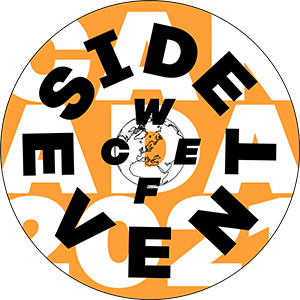
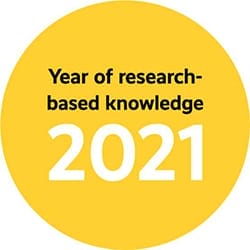
The webinar is also WCEF -side event and “Year of research-based knowledge” -event.
Read more about WCEF (click): https://www.sitra.fi/en/projects/wcef/
Read more about Year of research-based knowledge (click): https://tutkittutieto.fi/en/
Bio and Circular Economy Seminar (webinar) coming up in September!
(KT 5.3.2021, last update: 28.9.)
An international webinar takes palace next autumn, on Thu 30.9.2021 at 13.00 (1 pm Finnish time, EET; UTC 10 am).
Duration: four hours.
Webinar raises the current bio and circular economy activities mostly in Kymenlaakso Region but also elsewhere in Europe. It promotes bio and circular economy, connects potential new partners and strengthens existing partnership.
Presenters are mostly from forest industry, universities, and regional companies.
The target audience is people working within bio and circular economy themes around Europe.
We will hear about activities and interests in promoting development of low carbon society.
News?
A new company established to drive the battery materials plant
A new company established to drive the battery materials plant in Hamina (6.5.2022 KT)
A new company has been founded and given the name CNGR Finland Oy. CNGR Advanced Material owns 60 per cent and Finnish Minerals Group 40 per cent of the new company. The joint venture company is a step towards the implementation of the precursor cathode active material (pCAM) plant in Hamina.
Read more:
https://www.mineralsgroup.fi/news-jobs/news/cngr-finland-oy-to-drive-the-battery-materials-plant-in-hamina.html [accessed 6.5.2022]
EUR 30 million investments in the sheet cutting of cartonboard in Kotka
€14 million investments in Kotka mill facility for lignin handling
€14 million investments in Kotka mill facility for lignin handling
(21.12.2020 KT)
Stora Enso is set to invest €14 million building a new specialist plant at the Sunila Mill in Kotka. The new facility will make it easier to handle lignin products.
Work will begin on the new specialist plant at Sunila Mill in summer 2021 and it should be completed about a year later.
Read more:
https://newsnowfinland.fi/economy-business/stora-enso-investing-e14-million-in-kotka-mill-facility [accessed 21.12.2020]
Stora Enso invests EUR 21 million to Kymenlaakso
Stora Enso invests EUR 21 million to improve the performance of the Anjala-Ingerois production sites (1.7.2021 KT)
The goal of the investment at Anjala paper- and Ingerois board production sites is to reduce the emissions and to ensure flexible use of different fuel mixtures in heat production.
The project work is planned to be completed in 2023.
Read more:
https://www.storaenso.com/en/newsroom/regulatory-and-investor-releases/2021/6/stora-enso-invests-in-competitiveness-of-anjala-ingerois-and-nymolla-production-sites?prid=c0bed5bf7afd302e [accessed 1.7.2021]
The preparations for establishing battery material plants in Hamina and Kotka are underway
The preparations for establishing battery material plants in Hamina and Kotka are underway.
As the preparations progress, Finnish Minerals Group wanted to hear Kymenlaakso residents’ thoughts on the plants. The survey was implemented in March 2022, and as many as 94% of the respondents found that the placement of the battery material plants in Kotka and Hamina would promote economic growth and employment in the region.
The pCAM plant in Hamina would be producing precursor material that is a preliminary stage of cathode active material, as the plant in Kotka would further process precursor material into cathode active material used by cell plants to manufacture the cathode.
Read more:
https://www.mineralsgroup.fi/news-jobs/news/survey-residents-of-kymenlaakso-region-welcome-battery-material-plants.html [accessed 4.5.2022]
Kymenlaakso towards carbon neutral region
Hinku network – Towards Carbon Neutral Municipalities
(20.5.2020 KT)
The towards Carbon Neutral Municipalities (Hinku) network brings together municipalities, businesses, citizens and experts to create and carry out solutions to reduce greenhouse gas emissions. The municipalities involved are committed to reduce greenhouse gas emissions more extensively and rapidly than EU targets require. The network aims to create solutions that have economic and social benefits as well as environmental advantages. Some Finnish regions are also involved in Hinku network. The network is coordinated by the Finnish Environment Institute (SYKE). Emission reduction target: -80% CO2 (2007>2030)
In Finland there are 70 Hinku municipalities and four Hinku regions; Kymenlaakso region is one of the Hinku regions.
Read more:
https://www.hiilineutraalisuomi.fi/en-US/Hinku [accessed 20.5.2020]
https://www.kymenlaakso.fi/in-english/carbon-neutral-kymenlaakso-region-2040 [accessed 20.5.2020]
A unique pilot plant is under construction at Kotka
A unique pilot plant is under construction at Stora Enso Sunila Mill
(17.6.2020 KT)
A pilot plant that will produce renewable bio-based carbon is currently being built at Sunila Mill in Kotka, Finland.
Synthetic graphite, a non-renewable material commonly used in batteries, can be replaced by converting lignin separated from wood into carbon-based anode materials for lithium-ion batteries. Stora Enso has been producing lignin industrially at Sunila Mill since 2015. The annual production capacity is 50 000 tonnes, making Stora Enso the world’s largest producer of kraft lignin.
The pilot plant construction will be completed at the beginning of 2021.
Read more:
https://www.storaenso.com/en/newsroom/news/2020/6/trees-can-become-batteries-for-electric-cars—-unique-pilot-plant-in-sunila-mill [accessed 17.6.2020]
A new refinery for biodiesel production becoming to Hamina
A new refinery for biodiesel production becoming to Hamina
(19.8.2020 KT,updated 11.2.2021)
New refinery will be erected in Port of HaminaKotka, a chemicals port in Hamina, Finland. The refinery owned by Fintoil Oy will be in full operation in the middle of the year 2022.
Feed capacity will be 200,000 tons of crude tall oil and the process is fractional distillation. 65% of tall oil will go into the production of renewable pine diesel and the remaining 35% is used in the creation of other sustainable, innovative products.
Read more:
https://fintoil.com/refinery/ [accessed 18.8.2020]
https://fintoil.com/fintoil-gets-green-light-for-crude-tall-oil-biorefinery-in-the-port-of-haminakotka/ [accessed 11.2.2021]
Current
12.11.2021 10:51
Strong bioeconomy and circular economy activities in Kymenlaakso provide a solid foundation for new success stories in the region.
This was noticed in the international webinar Bioeconomy – Made in Kymenlaakso, Finland organized by BUT project at the end of September. The webinar was also a WCEF side event and an event of Year of research-based knowledge.
Strong actors in the region highlighted activities that promote both the bio and circular economy in the region. The real success stories are made together with different actors, which can be seen from the presentations.
The new video, Kymenlaakso, promoter of bio and circular economy, was premiered in the webinar as one of the outcomes of the project. The video shows that bioeconomy in Kymenlaakso have a background of 150 years, and the forest industry and primary production are still important parts of Kymenlaakso`s identity.
Kymenlaakso is a home to many bio and circular economy businesses, as well as several companies that work to advance sustainable development. The links to the videos can be found at the project websites both in English and Finnish: New openings in the bioeconomy (BUT) – XAMK.
SummarY of the webinar presentations
Forewords were given by Acting Mayor of City of Imatra Ari Lindeman, who also moderated the webinar. As a former research manager at Xamk, Lindeman has an extensive international experience.
– Development work often involves expanding networks and maintaining old connections, Lindeman highlighted.
The moderator´s experience on RDI activities combined to his present responsibilities in Imatra created a new bridge for cooperation between Kymenlaakso and South Karelia.
Opening words were given by Regional Mayor of Kymenlaakso, Jaakko Mikkola. Mikkola emphasized the importance of bio and circular economy for Kymenlaakso when moving towards carbon neutrality.
– Bio and circular economy is one of the main three priorities in our smart specialisation strategy (RIS3), Mikkola emphasized. – Smart specialisation is the driving force behind innovation, growth and internationalization to achieve a region that is competitive, attractive and vibrant.
– The choices of Kymenlaakso region for smart specialisation priorities are bioeconomy and circular economy, smart and green logistics, and digitalisation, Mikkola continues.
When all the top priorities of RIS3 meet and they naturally have interfaces, the most innovative and successful results are obtained.
- For more information about Kymenlaakso’s carbon neutrality, see the emissions table from this link. If you click on the red buttons in the picture you will find even more information.
Forest industry
The webinar provided an overview to development activities in forest industry companies operating in the area. All the globally operating companies have the same starting point for their operations: their business opportunities arise from the global megatrends, which enhances the demand for renewable materials.
– Everything that can be made from fossil-based materials today can be made from a tree tomorrow, Sunila representers Timo Tidenberg and Kari Nikunen explained.
Trees are composed of 20–30 % of lignin, and Sunila Mill is the largest kraft lignin extraction plant in the world. Lignin, that is treated to carbon, can be used as a replacer of graphite: trees can become batteries!
MM Kotkamills has a vision to replace plastics. There are hundreds of billions plastic containing unrecyclable cups, and it’s time to change that.
– Folding boxboard and barrier board offer the transition to plastic-free convenience packaging”, said Saila Kettunen.
MM Kotkamills has an integrated mill pioneering integration for resource efficiency. Working together in three business lines (folding boxboards and barrier boards, core materials for high pressure laminates, sawmills with wood products and providers of the raw material for other businesses) and creating smart relationships, accelerates the circular economy in the sustainable way and with broader impact.
UPM Kymi integrate consists of pulp and paper mills, energy production and production of precipitated calcium carbonate (PCC). It’s using 90 % biofuels in its energy production. The circular economy is a key element of its activities, and pulp is the powerhouse of bioeconomy.
Sustainable wood raw material turns into different fractions and are used e.g. as saw-dust, pulp and crude tail oil. Packaging board can be made of pulp and bioplastic made of residue of pulp production.
– Future beyond fossils can be achieved with sustainable solutions and utilizing the forest in a wise way” stated Jyri Kylmälä.
UNIVERSITIES CLOSELY RELATED TO KYMENLAAKSO
Juha Helenius from Ruralia Institute, University of Helsinki, clarified the meaning of agroecological symbiosis and its network. He also presented how logistics of biomass define the scale of “local”.
– Rural areas and rural cities can have a significant role in sustainability transformation”, Helenius stated.
Jouni Havukainen from LUT University showed LUT’s sustainable solutions for bio and circular economy through research and development actions. For example, LUT implements the projects related to using side streams to renew the concrete and examines materials and technology needed for sustainable re-materializations.
ABROAD
Potential partners for continuing co-operation with regional actors in Kymenlaakso in sustainable development were found in Estonia and Netherlands.
Kaja Peterson from Stockholm Environment Institute Tallinn Centre, Estonia, presented the importance of different matters: innovations in bioeconomy are enabled by linkages, networks and interaction.
– Potential is there, how to make use of it sustainably?, asked Peterson in her presentation.
– Bioeconomy and circular economy demand creativity and cooperation between the actors, Peterson concluded.
Alwin Hoogendoorn from the Centre of Expertise Biobased Economy (CoE BBE), Netherlands, introduced the five different biobased research groups at Dutch Universities of Applied Sciences, as well as many various projects.
Some of the projects are related to materials that are also of interested at Xamk (e.g. biochar), some are otherwise interesting projects such as developing leathery vegan materials.
REGIONAL ACTORS
Regional actors presented what they have done to accelerate bio and circular economy in Kymenlaakso region, and what the possibilities not yet efficiently used are.
Janne Harjunpää, representing Myllykoski Bioethanol and Redeve, showed ideal locations for bio and circular economy business. He told us about the plans for Myllykoski Bioethanol (Mbio) where the main raw material is sustainably harvested cereal straw from the region. The procurement brings steady long-term further cash flow to farmers and makes the cereal growing a major carbon sink and returns the nutrition components back to cultivation.
Another suitable site for new bio and circular economy businesses, with fully furnished office and large industrial space in Kouvola, is Voikkaa business park. Both sites have available infrastructure due to former paper mill located in the area.
Veli Hyyryläinen from Elementit-E showed us some facts about company: this family business in timber construction is one of the leading suppliers of modular buildings in Finland. Buildings are 100 % technologically recyclable and movable.
The company has taken several actions to promote bio and circular economy: sorting, recycling, training personnel and producing renewable energy with wood chips and solar panels. Elementit-E is actively fighting against climate change by further developing timber construction.
Virpi Leppälä, representing Kymenlaakson Jäte Ltd, 100 % communities-owned company, explained that the company has waste treatment center in Kouvola area, 10 waste stations and 70 eco-collection points mostly in the region of Kymenlaakso.
The waste company promotes bio and circular economy by producing biogas from garden waste and collecting landfill gas and turning them into energy (heat and electricity). The power plant using wood waste as a fuel has started heat production for district heating. The unrecyclable waste is used as a fuel in waste-to-energy power plant.
– In Kymenlaakso we utilize about 97 % of household waste, almost half as material and more than half as energy”, Leppälä emphasized. Company also has solar panels, geothermal heating in office building, and garbage trucks are using biogas as their fuel.
– Hyötyvirta concept is a network of environmentally focused businesses”, told Mika Penttilä from Kouvola Innovation through video.
Because the demand for green and innovative bio-circular solutions and technology is growing, there is a need for Hyötyvirta concept, business park and circular economy centre in Kouvola.
– Circular economy concerns all companies, and gives opportunities to create new business”, he continued.
The business park is to be built close to waste treatment center, with good logistics connections, to enable as effective and versatile material treatment and utilization as possible.
– Logistics, the location between east and west, was Mika’s answer for question about the biggest advantage for businesses locating in Kymenlaakso.
Petteri Jernström, representing KymiLabs of South-Eastern Finland University of Applied Sciences (Xamk), presented how Xamk can serve companies via environmental testing and RDI activities with focus area of forest, the environment and energy.
In Kymenlaakso region there are diverse RDI projects carried out in the fields of e.g. energy efficiency, fraction technology and carbon-curing of concrete. Environmental testings are Xamk’s KymiLabs main themes related to emission measurements, also testing of fuels and concrete.
Conclusion
The moderator Ari Lindeman summed up the topic of the day well:
– We need closely knit ecosystems around bioeconomy innovation and business for our regions to prosper and meet the climate challenge, he stated.
This is what we wanted to do in our webinar: knit different actors together and thus accelerate the development work.
We had over 100 registrants from 11 different countries, so not only we had great presentations, but very versatile audience as well. From the feedback we got merely positive comments, and especially the videos was said to be very interesting.
On the behalf of the BUT project I wish to thank all the presenters and participants!
Kirsi Tallinen
Project Manager, Xamk
New openings in the bioeconomy (BUT)
Info
Budget
Keywords
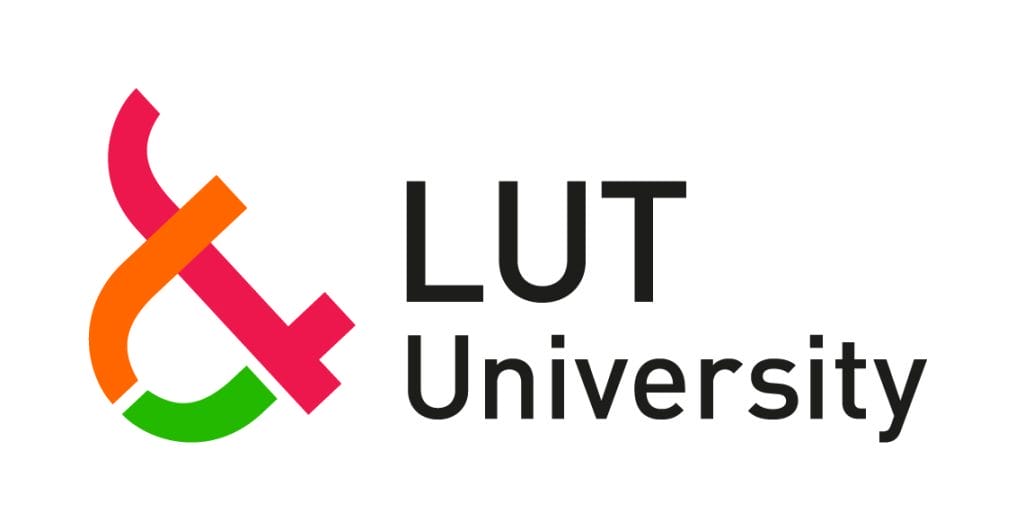

Contact info
For more information, please contact to
Mr Petteri Jernström
Research Director
petteri.jernstrom@xamk.fi
South-Eastern Finland University of Applied Sciences (Xamk), Forest, the environment and energy, Kotka, Finland




